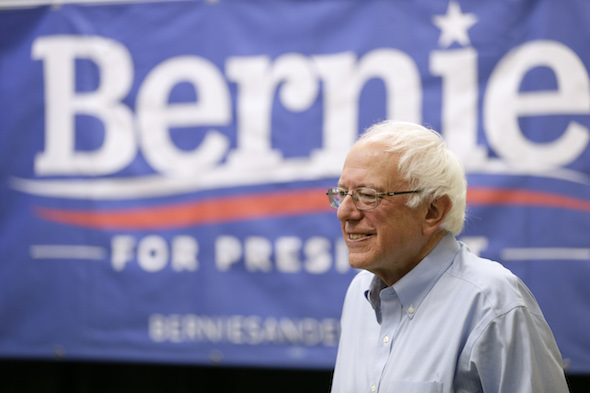
How easy it is to mock the Republican candidates. They’re the gang in the clown car climbing all over each other to offer a reactionary message of disarray that has all but destroyed the chances of the Bush family dynasty continuing. But isn’t that a grand achievement for the democratic process?
Why continue a political legacy that has failed in so many dramatic ways to serve the needs of the American public, instead giving us irrational but high-tech wars dealing death from the skies, heartless banking deregulation boosting the fortunes of the rich at the expense of the vast majority, and a vast state apparatus of surveillance enforced by the imprisonment of any whistleblowers who dare reveal its existence?
Good riddance to bad rubbish, except that the alternatives of Trump, Fiorina or Carson only make Jeb Bush look stunningly reasonable in comparison. The other problem is that Hillary Clinton, the leading Democratic candidate, is not fundamentally different from the scion of the Bush dynasty. She is instead a perfect stand-in for Jeb Bush if, as appears likely, the Republican Party should reject him for the sin, as with House Speaker John Boehner, of appearing too moderate. For Democrats, appearing moderate is quite easy, as Clinton proved as a senator and secretary of state: Just carry water for the military-industrial complex and Wall Street while pretending to be concerned about the ordinary folks who suffer from those costly policies.
Clinton, in rhetoric and action, will never allow a Republican opponent to appear more hawkish than herself. In the general election, she will burnish her record of support for every bit of military folly from George W.’s invasion of Iraq to her own engineering of the campaign to overthrow all secular dictators in the Middle East who have proved to be an inconvenience to the Saudi theocracy.
During her tenure in the Obama administration, Clinton, by her own frequent boastful admission, was the hawk in the Cabinet pressuring the president to be even more aggressive in his drone assassinations and murderous air wars, which have destabilized the region and created what the pope recently termed the worst refugee crisis since the Second World War.
But it is the still troubled economy that will dominate the election, and it is the failure of the Democratic Party establishment—now represented singularly by Clinton—to deal with the lingering recession that explains the startling rise of Bernie Sanders as a viable candidate.
The Vermont senator’s success is not a result of charisma or image manipulation, both of which he quite properly treats as dangerous distractions from what ails us, but rather his deeply informed critique of the bipartisan policies of Presidents Clinton and Bush that have brought so much misery in their wakes.
What makes Sanders appear less formidable to the party bosses is that although he is now matching Hillary Clinton in the all-important fundraising category, he has received mainly small contributions. That and the fact that his positions on health care and banking regulation take on entrenched moneyed interests rather than cravenly cater to them.
Whereas Sanders supports the efforts by Sen. Elizabeth Warren and Sen. John McCain to restore the Glass-Steagall barrier against merging commercial and investment banking, Clinton still insists her husband did the right thing in signing off on the reversal of the sensible banking practice initiated by Franklin Delano Roosevelt to prevent another Great Depression.
A year after he approved the destruction of the Glass-Steagall Act, Bill Clinton signed off on an even more egregious enabler of banking greed called the Commodity Futures Modernization Act that certainly enhanced Hillary’s future Senate fundraising prospects. Even then-Rep. Bernie Sanders fell for that one. Only four members of the House, Ron Paul among them, had the courage and wisdom to vote against legislation that banned any regulation of the newfangled default swaps and collateralized debt obligations that came close to wrecking the world’s economy.
Hopefully Sanders has learned from that moment not to trust the Clintons to guard against the chicanery of bankers. He should challenge Hillary’s claimed concern for the well-being of black and brown people, who right now are her advantage in polling. As the St. Louis Federal Reserve recently reported, even college-educated minorities were particularly devastated by the mortgage scams made legal through Bill Clinton’s banking “modernization.”
What voters of every racial or ethnic group should understand is that the Clinton gift—worth billions to the banking industry—robbed all working Americans of the opportunity to improve their lot, as shown by the astounding growth in wealth inequality since the Clinton presidency.
Are we really ready for another Clinton?’
Truthdig October 2, 2015



Expositores: Oscar Vidarte (PUCP) Fernando González Vigil (Universidad del Pacífico) Inscripciones aquí. Leer más
Una retrospectiva para entender los próximos cuatro años. Leer más
En la conferencia se hará una presentación de los temas más relevantes del proceso de negociación se llevó a cabo desde el 2012, así como del acuerdo de paz firmado entre el Gobierno colombiano y la guerrilla de las FARC a finales del 2016. Se analizarán los desafíos y las... Leer más
El Observatorio de las Relaciones Peruano-Norteamericanas (ORPN) de la Universidad del Pacífico es un programa encargado de analizar y difundir información relevante sobre la situación política, económica y social de Estados Unidos y analizar, desde una perspectiva multidisciplinaria, su efecto en las relaciones bilaterales con el Perú.
© 2026 Universidad del Pacífico - Departamento Académico de Humanidades. Todos los derechos reservados.

